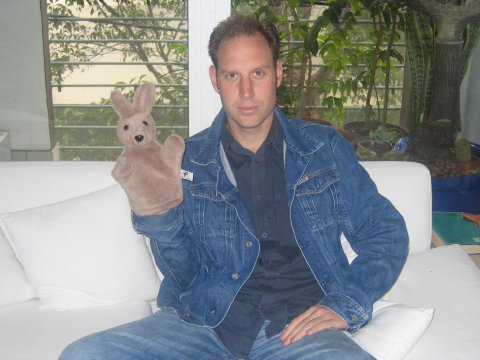The latest, most dangerous drug ...
If in about 10 years you see a guy on the train reading the Da Vinci Code it'll probably be me. One of my reading habits is to pick up popular books many years after they've dropped off the bestseller lists. Right now I'm reading Emotional Intelligence, and although I was a bit leery at first (mostly because of what seemed to be the marketing angle) it now has me in its grasp.
I particularly like the bit that explains how anger is bad for your health, but also produces a rush or a high, therefore making it addictive. It struck me that the 'innocent victim' feeling, or righteous indignation that Goleman describes is very similar to what we experience when we watch the news. We all gather around the TV to hear about the latest crime/tragedy/cockup, and while we hope that the people responsible for said incident will get their comuppance, we know they probably won't. Grrrr.
On the surface, it doesn't seem like a very satisfactory experience, but if you check the ratings, a lot of people are doing it. Maybe one of the reasons for this is the anxious/angry buzz it gives us. Taking it a step further, I got to thinking that the powers that be often employ this effect in advertising and health warnings too.
Remember, for example, when scientists discovered that Mediterranean races had fewer heart problems than others? They looked at the Australian diet to work out what we could do better. Next thing you know, sunflower oil was disappearing off the supermarket shelves to be replaced by olive oil. But sometimes I wonder how much was the oil and how much the lifestyle -- ie, unless you move to a Mediterranean village and start fishing, no quantity of olive oil will help you. And it would be a sad irony indeed if all the advertising about coronary artery disease and olive oil actually caused more heart attacks as we stressed out about all the chico rolls we ate as children. Or what about the gruesome anti-smoking ads that the cancer institute here puts out? Could they be contributing to the problems rather than fixing them?
Although I don't watch the news, I do like the occasional dose of righteous indignation. Late last year I was out with some friends, one of whom was visiting from Melbourne with his new girlfriend. She was talking about how science could soon increase our life expectancy to 150 years and I pointed out that there might be a few other problems that we should focus on before we worry about extending our lifespans any further. Very simply and calmly she said no, that she thought it was great, and that things in general in the world were improving.
What a conversation stopper! Everyone at the table went silent for a minute. I had been about to launch into a tirade about everything wrong on our planet, but her statement knocked all that on the head. Whether or not I agree with her, what it made me realise was that I was anticipating my fix of doom and gloom with some glee. When I couldn't have it, it was kind of like having a cocktail mixed and served in front of me and not being able to drink it.
So where does that leave me (besides craving a martini and a cigarette)? In fact it leaves me precisely on page 178 of Emotional Intelligence. Stay tuned for next week's entry: an introduction to Harry Potter.




